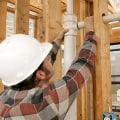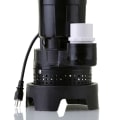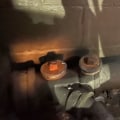Your water bill usually increases in summer if you have grass, and stained and damaged ceilings, walls and floors are a telltale sign that something is wrong. One of the best ways to tell if you have a leak somewhere in the pipe is to check the water meter. To do this, you will first have to turn off all the water in your house. Turn off all faucets and make sure that the dishwasher and washing machine are not working.
Then look at the gauge and see if it starts to change. If it does, you're likely to have a fast-moving leak. If the meter doesn't change immediately, wait two hours and check it again. If it has changed even though all the water has been cut off, it may be a slower leak. The leak could be anywhere after the meter, or even underground.
Remember that all pipes after the meter are the responsibility of the owner. Nearly 10% of homes have an undetected water leak that causes them to lose about 90 gallons of water a day. Everyone hears some knocks and knocks at night as the air in the pipes settles. However, if you hear a constant dripping noise or find that the toilet is constantly filling up, you may have a water leak. There are many different odors that can come from the bathroom, but this one is caused by mold that grows in areas where leaky plumbing prevails. Look at the pipes that you can easily access and see if you notice that it's leaking on the floor underneath them.
Not only does that pipe reduce your water bill, but it also increases the number of repairs you'll have to do in areas affected by water leaks. If you notice that the soil around your house is unstable due to increased humidity (and, of course, it hasn't rained recently), that could indicate a leak in an underground pipe. A groundwater leak, sometimes also called a slab leak, is a leak that originates from water pipes that run underneath your house or building. An old water heater may have holes in the bottom due to corrosion inside the tank, and the water pipes that lead to outdoor water faucets can freeze and burst during cold winters. Remember that your homeowners insurance will likely cover the cost of most water damage, but it probably won't cover the cost of a complete repair of the pipes. Not many people realize that most (if not all) of today's water meters can detect if there's a leak in one of the pipes.
Underground leaks are often caused by perforations in pipes due to friction or corrosion, erosion, expansive soil displacement, poor quality pipes or installations, poor water quality, or chemistry and aging. Nobody wants to lose money with their water pipes, not to mention the thousands of dollars in damage that a leak could be causing to their property. If that ever happens, it's a telltale sign that you have a leaking pipe (or two) somewhere on your property. Leaky pipes are not easy to detect as they are hidden under sinks, in walls and other hidden places. As an expert in SEO, I recommend homeowners take proactive steps to identify any potential plumbing issues before they become major problems. Now that you've seen several specific signs of a leaking pipe, it's time to contact someone who can fix the problem for you.




Leave a Comment